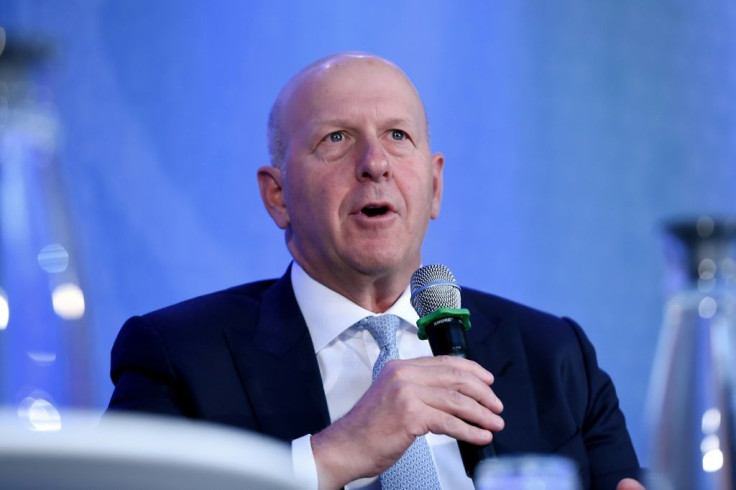Goldman Sachs CEO Says Way Forward From Coronavirus Will Be A ‘Bumpy Ride’
Speaking at a conference Wednesday, Goldman Sachs CEO David Solomon offered a bleak outlook for the U.S. as it works towards economic recovery in the wake of the coronavirus pandemic. With spending up in some sectors, but cases of COVID-19 surging all over the country, Solomon said the country faces an “uncertain” economic situation.
“I think in the next couple of months you’ll see a tamping down of that acceleration, I think you’ll see poorer economic numbers,” Solomon said to the Economic Club of New York. “I think we’re in for a very, very bumpy ride.”
Solomon predicted that “very, very high unemployment” will persist for many months, even after the creation of an effective vaccine. This will be felt the most by service industries, where businesses will struggle to reach pre-pandemic levels.
He also noted that, for comparison, lawmakers were only just beginning to move away from measures taken to address the 2008 financial crisis. With this in mind, Solomon guessed that the debt, currency weakness, stunted growth caused by the government response to the pandemic might be felt for upwards of 10 years.
“I think it will take an awful long time to navigate our way out,” Solomon said.
Overall, Solomon said that he was pleased with the government’s financial response to the crisis. In particular, he praised the stimulus payments for individuals and businesses for preventing widespread closures and hardship.
Solomon’s positivity over the government’s financial response was reflected by a recent study that found the positive impact that the Paycheck Protection Program had on employment at small businesses. The research found that between 1.4 million and 3.2 million jobs were potentially saved by the program in the first few months of the pandemic.

© Copyright IBTimes 2024. All rights reserved.











